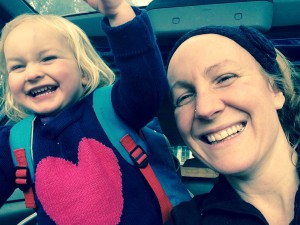PDCs and Families

Today’s interview is with Jesse Peterson and Penny Livingston-Stark about how to make permaculture education more accessible and provides different ways to do so for families and couples, as well as for those for whom the more traditional two-week intensive is burdensome. We also discuss different class formats beyond the design course, and what age is appropriate for a student to receive a certificate. Penny also delves into what it means to be a certified permaculture designer.
You can find out more about Jesse and her work at insideedgedesign.com, and Penny is at regenerativedesign.org. 
Jesse and her daughter
Permaculture accessibility is of ongoing importance to me, as well as those of us who call Seppi’s Place home. Though my work on the podcast continues to push the edges of social, economic, and community permaculture, the core corpus of knowledge that comes with designing a series of permacultures rests in the Permaculture Design Course, which requires steeping one’s self in the language of the land, food, and gardens; water, clothing, work, and shelter. Through that one gains a core understanding of the language and lexicon of practicing permaculture. It isn’t the destination of the journey, but the starting point, a place too often one cannot start down because of barriers of time, cost, or burden to family. That is changing, however, as more permaculture teachers, such as Penny and Jesse, see this problem and try different solutions. In their case, they provide child care and couples discounts. In others, the format is broken up and spread out over a series of weekends. Some are even being offered in the gift-economy. As time and needs change, so does our approach to permaculture. I remember a time speaking of permaculture beyond the landscape seemed completely foreign and antithetical to the work, but more books and articles emerge on social and economic permaculture each day. The more teachers and students who take up the mantle to teach and learn this material, the more options we have in sharing it with others, and in continuing to make it more accessible and affordable. Whether you are a student looking for an alternative to the traditional design course intensive or are a teacher who is offering something different, I’d like to hear from you.
Resources
Permaculture Design Course with Broken Ground
Inside Edge Design
Regenerative Design Institute
Institute of Permaculture Education for Children
Sarah Wolbert David
Sobel David’s Books
Connect with the Podcast
Support the Podcast (PayPal.Me)
On Patreon
On Instagram
On Twitter


